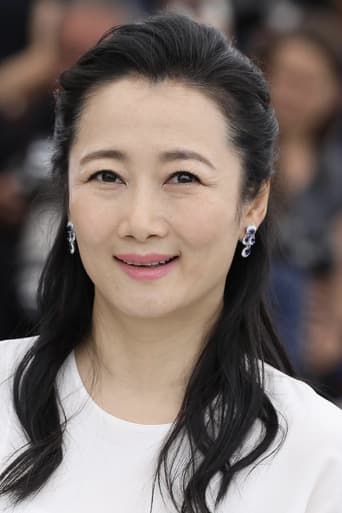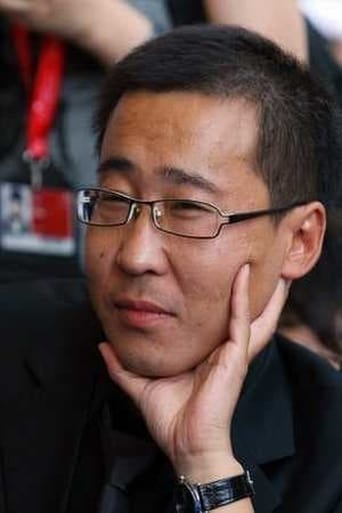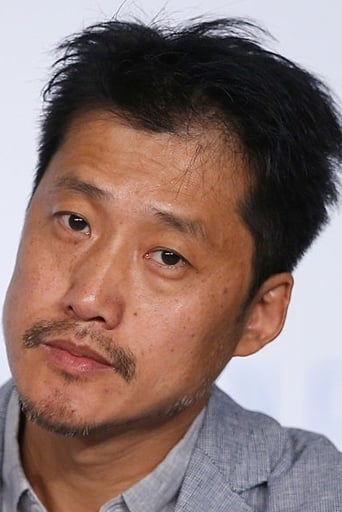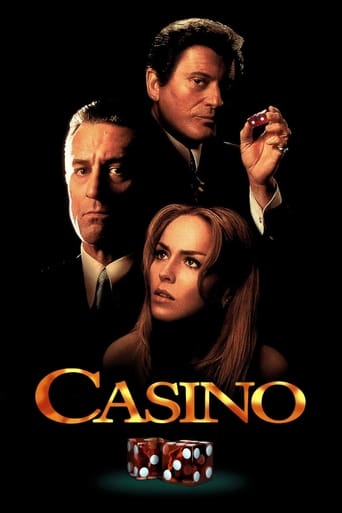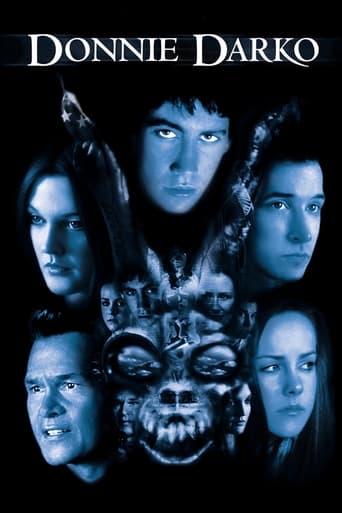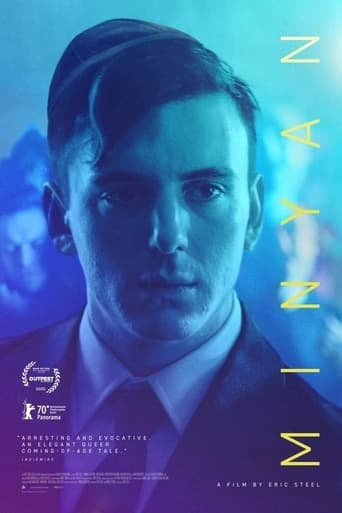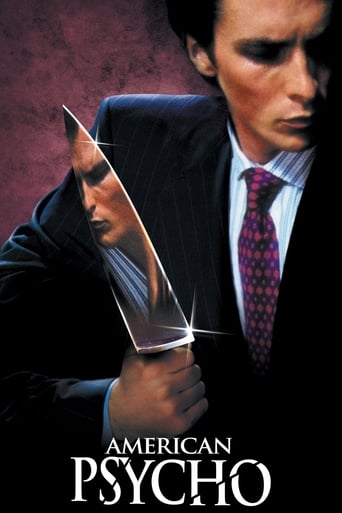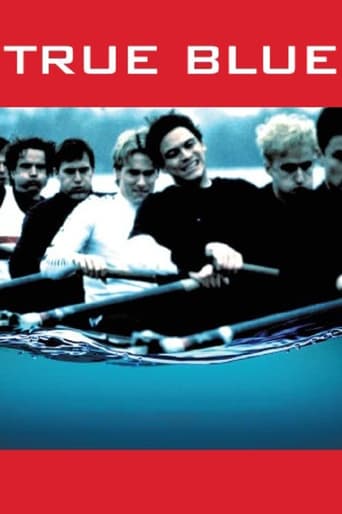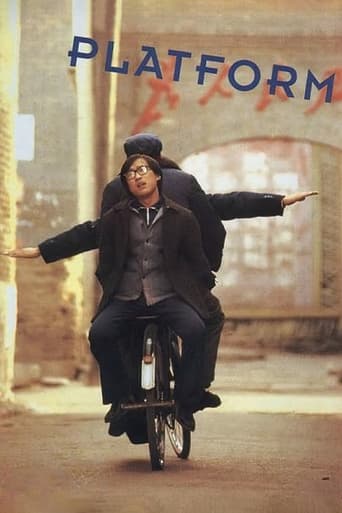
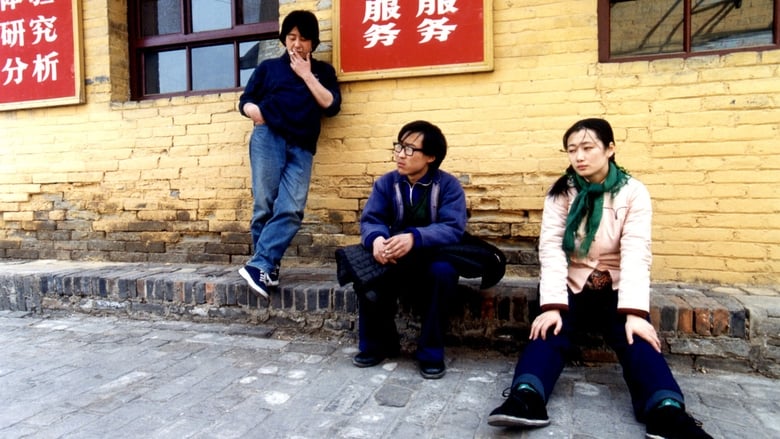
Platform (2001)
China's rapid changes from the late-1970s to the early 1990s, as seen through the lives of four performers in a theater troupe.
Watch Trailer
Cast


Similar titles
Reviews
This is one of my all-time favorite films for all the reasons identified by other reviewers. Until recently, I had only seen the 154 minute version, which was released in theaters and on DVD. I just saw the original, uncut version, which is 193 minutes long, and it is markedly superior. Not only does it fill in many of the gaps that make the shorter version seem somewhat disjointed, it has several brilliant scenes that had me shaking my head wondering why they were cut from the theatrical/DVD release. I understand that Jia Zhangke is working on a director's cut of the film, which will hopefully do some necessary trimming, but also restore these scenes.
I have seen many, many films from China - and Hong Kong. This is the worst. No, the worst one was 'Unknown Pleasures'. I watched 'Platform' yesterday evening and thought that Jia Zhang Ke's other two films must be better. This evening I was disappointed again. I will not be watching 'Xiao Wu' tomorrow evening because I have just placed all three films in the bin! Whoever gave this film, 'Platform' ten out of ten, needs to watch more cinema! The photography was very poor: it was very difficult to differentiate between some of the characters because of the lack of close-up work. The storyline was so disjointed that I fast-forwarded it towards the end out of pure frustration. I would not recommend this film to anyone. Give me Zhang Yimou or Chen Kage any day. These are true masters of Chinese cinema, not pretentious con men!
"Zhantai" has so many of the features I have admired from recent Oriental masterworks such as " A Brighter Summer Day", "Eureka" and "City of Sadness" that I will have to find some justification for considering it ultimately so much less satisfying. Like these others it succeeds in creating a complete world of its own that, because it is so remote from Western experience, exerts a fascination that is hard to forget. We are in Fenyang a small town somewhere West of Beijing, where flat plains give way to craggy, uninviting mountains. The time is the early 1980s when strict Maoist ideology was about to give way to a period of consumer liberalisation. A group of young actor-singer- dancers employed by the state to remind provincial audiences of the principles of Mao through the medium of stage entertainment are about to see their world fall victim to the progress of private enterprise, when no longer needed for government propaganda. What was once a captive audience turns fickle, often rejecting outright the new form of pop culture they are offered. The irony is that progress in this context brings disillusionment resulting in a group of friends drifting away from their close initial camaraderie. By the time the film ends their future looks far from confident. Both thematically and atmospherically "Zhantai" has the potential for great cinema. Why then after two viewings in quick succession do I find its sense of communication so elusive and uninvolving? The answer must lie in the way the director seems to distant his characters from their audience. We never get closer to them than a middle shot. In a film where the close-up is as rigorously excluded from cinematic grammar as camera movement from the later work of Ozu, the characters' everyday lives seem to be presentad as an extension of their existance on stage to the extent that we are often left to guess at their feelings and emotions. I have written before of how fascinated I am to respond to the demands of directors such as Edward Yang and Hou Xiaoxian to connect with characters and situations when given the barest information. Director Jia Zhangke is obviously aiming at their oblique narrative style but somehow gives so little that by the end I felt I knew much more about the topography of Fenyang than of the characters that live there. For a film about the effect of historical change on individuals to be completely successful it needs to be the other way round.
I am from Argentina, so is difficult to me to express, but the film is a beautiful master piece about the history of China. The view of a group of a cultural actors is perfect, because they first work as actors that like Mao, but then they make breakdance...


